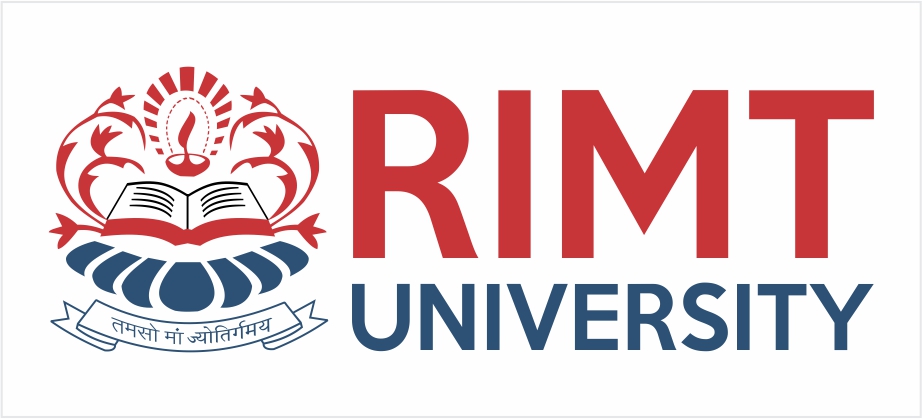About Programme
In today’s world “Internet of Things” (IoT) is very important and have applications in almost all fields of engineering and sciences. The “Internet of Things” (IoT), which has many uses in the automotive, consumer electronics, medical, and defense industries, has drastically altered human society.
B.Tech. Computer Science & Engineering (Internet of Things) program has been offered to gain a thorough understanding of Internet of Things (IoT) technologies. The program covers everything from basic ideas to sophisticated applications, guaranteeing that students gain both theoretical understanding and hands-on experience with a variety of IoT components. This entails a comprehensive investigation of embedded systems, sensors, Internet of Things networks, operating systems, and data analysis methods.
Eligibility & Admission
Passed 10+2 examination with Physics, Mathematics and Chemistry. Obtained at least 45% marks in the above subjects taken together.
| PROGRAM FEE | AMOUNT |
|---|---|
| Application Fee (One Time) | 1,000/-INR |
| Registration Fee (One Time) | 15,000/-INR |
| Security (One Time – Refundable) | 8,000/-INR |
| Semester Fee | 95,000/-INR |
Scholarship
| Marks in 10+2 | Scholarship Per Semester | Applicable Fee After Scholarship Per Semester |
| 60% – 70% | 20% | 76,000/-INR |
| More than 70% – 80% | 30% | 66,500/-INR |
| More than 80% – 90% | 50% | 47,500/-INR |
| More than 90% – 100% | 100% | 0/-INR |
| Percentile | Scholarship Per Semester | Applicable Fee After Scholarship Per Semester |
| More than 90 | 100% | 0/-INR |
| Between 80 – 90 | 75% | 23,750/-INR |
| Between 60 – 80 | 50% | 47,500/-INR |
| Disability Level | Scholarship Per Semester | Applicable Fee After Scholarship Per Semester |
| 90% & Above 90% | 30% | 66,500/-INR |
| 75% & Below 90% | 20% | 76,000/-INR |
| 50% & Below 75% | 10% | 85,500/-INR |
| Category | Scholarship Per Semester | Applicable Fee After Scholarship Per Semester |
| Wards of Param Veer Chakra | 30% | 66,500/-INR |
| Winners of Maha Veer Chakra | 20% | 76,000/-INR |
| Winners of Veer Chakra | 10% | 85,500/-INR |
| Work Tenure | Scholarship Per Semester | Applicable Fee After Scholarship Per Semester |
| More than 5 years continuous service | 30% | 66,500/-INR |
| 1 Year – 5 Years continuous Service | 20% | 76,000/-INR |
| Category | Scholarship Per Semester | Applicable Fee After Scholarship Per Semester |
| Single girl child | 20% | 76,000/-INR |
| Category | Scholarship Per Semester | Applicable Fee After Scholarship Per Semester |
| Parentless | 30% | 66,500/-INR |
| Either fatherless or motherless provided the annual family income is less than 2.5 lakh | 20% | 76,000/-INR |
Career Prospects
As an outcome of the programme, students will ascertain certified skills of IoT technology. They will also be exposed to the industrial environment through various webinars, projects and internships. The various jobs offered by the major IoT companies:
- Embedded Programs Engineer
- Sensors and Actuator Professional
- IoT Architect
- IoT developer
- IoT Engineer
- IoT Security Engineer
- Cloud engineer
- Fullstack Developer
- A.I. based Web Development Engineer
- Artificial intelligence Engineer and Data Analyst
Chief Internet Of Things Officer (CIoTO)
At RIMT University, the training and placement department will help the enrolled students to do their internships followed by their final placement in the respective multi-national companies.
Curriculum
Students study how the Internet of Things is transforming a variety of sectors, including real estate, transportation, insurance, healthcare, smart cities, and industrial IoT. Graduates with this varied exposure have the adaptability needed to succeed in a range of professional environments. There are plenty of opportunities in fields like manufacturing, energy, utilities, smart city initiatives, R&D centers, and IoT-focused businesses and companies. The program further facilitates practical engagement through project based learning or industrial defined problems. These projects or problem solving methods offer hands-on experience in embedded coding, sensor deployment, and data analysis, cementing students’ skills and preparing them for the demands of real-world IoT applications.
